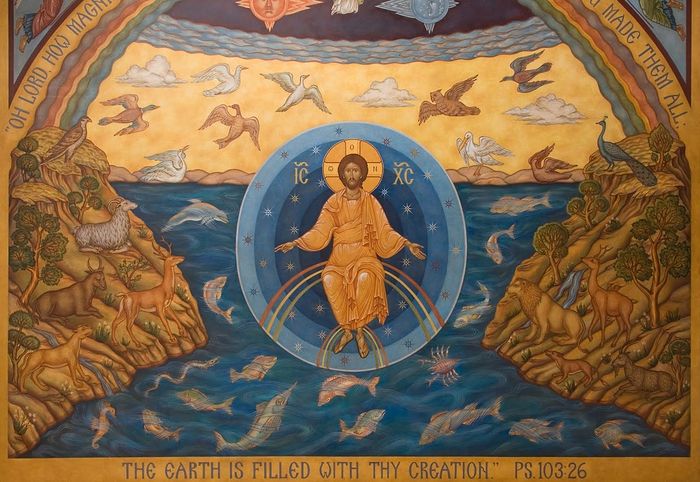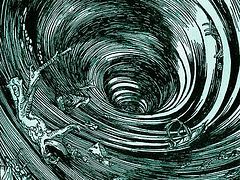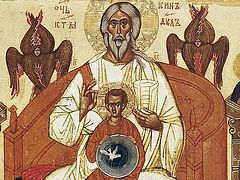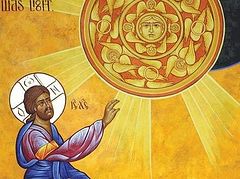I believe in one God, the Father Almighty, Maker of heaven and earth, and of all things visible and invisible. And in one Lord Jesus Christ, the Son of God, the only-begotten, begotten of the Father before all ages. Light of Light; true God of true God; begotten, not made; of one essence with the Father, by whom all things were made.. (Nicene Creed, emphases added)
In the Nicene Creed we profess a belief that God created everything and everyone. St John Chrysostom says this fact has an implication for all of us and how we approach the created world we live in (as stewards entrusted with God’s property gifted to us) and how we approach all the people we encounter (as fellow neighbors sharing God’s earth). For Chrysostom there is only one thing we really own – our good deeds. Our deeds are our only true possession and the only thing we really can offer to God.
“… Chrysostom … felt that there was but one owner of all things in the world – God Himself, the Maker of all. Strictly speaking, no private property should exist at all. Everything belongs to God. Everything is loaned rather than given by God in trust to man, for God’s purposes. Chrysostom would add: Everything is God’s except the good deeds of man – it is the only thing that man can own.
As everything belongs to God, our common master, everything is given for common use. Is it not true even of worldly things? Cities, market-places, streets – are they not a common possession? God’s economy is of the same kind. Water, air sun and moon, and the rest of creation, are intended for common use. Quarrels begin usually when people attempt to appropriate things which, by their very nature, were not intended for the private possession of some, to the exclusion of others. …
Chrysostom was after justice in defense of human dignity. Was not every man created in God’s image? Did God not wish salvation and conversion of every single man, regardless of his position in life, and even regardless of his behavior in the past? All are called to repentance, and all can repent. There was, however, no neglect of material things in his preaching. Material goods come also from God, and they are not bad in themselves. What is bad, is only the unjust use of goods, to the profit of some, while others are left starving. The answer is love. Love is not selfish, ‘is not ambitious, is not self-seeking.‘ ” (Georges Florovsky, ASPECTS OF CHURCH HISTORY Vol 4, pp 84-85)
Love is patient and kind; love is not jealous or boastful; it is not arrogant or rude. Love does not insist on its own way; it is not irritable or resentful; it does not rejoice at wrong, but rejoices in the right. Love bears all things, believes all things, hopes all things, endures all things. (1 Corinthians 13:4-7)




